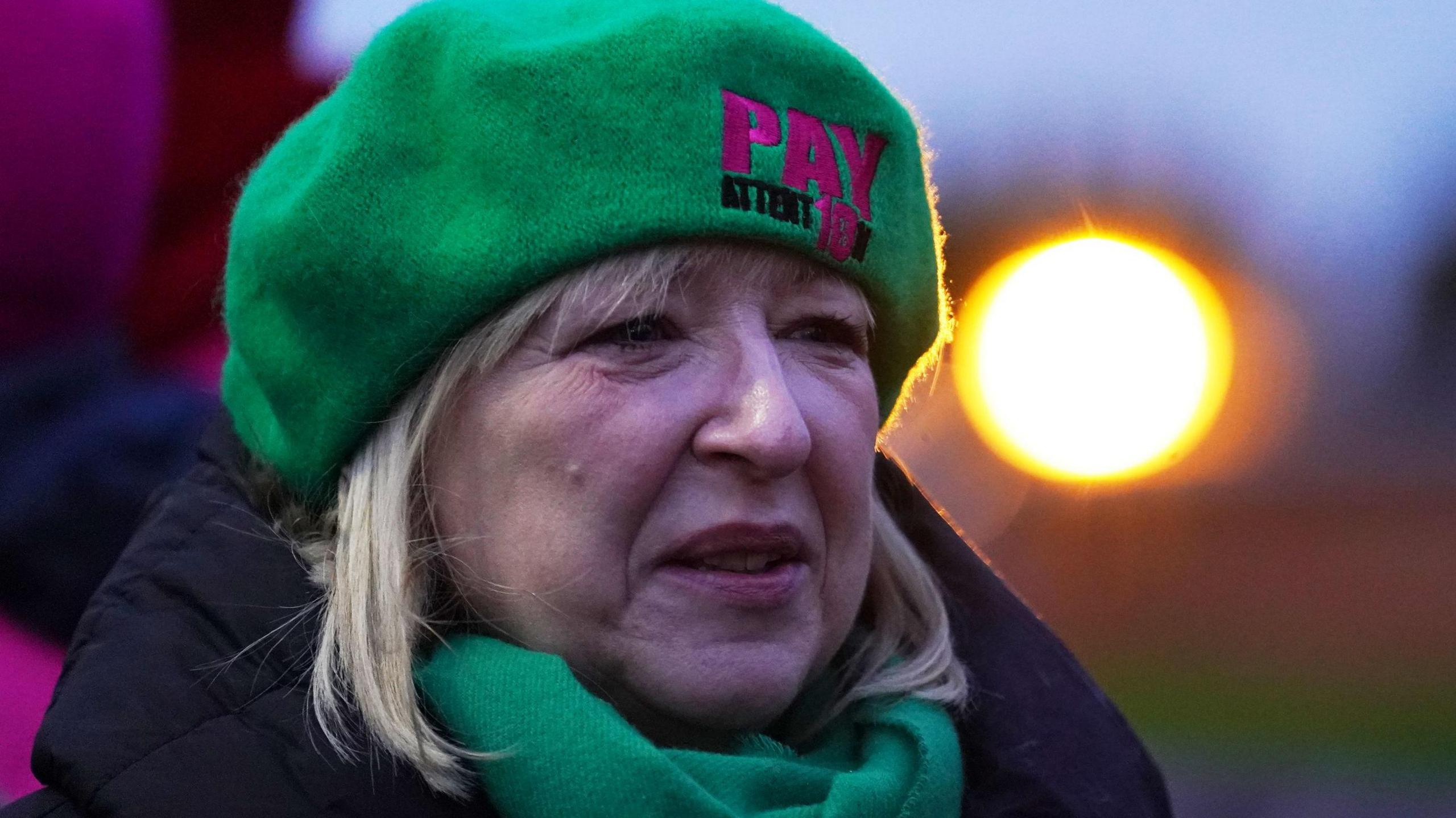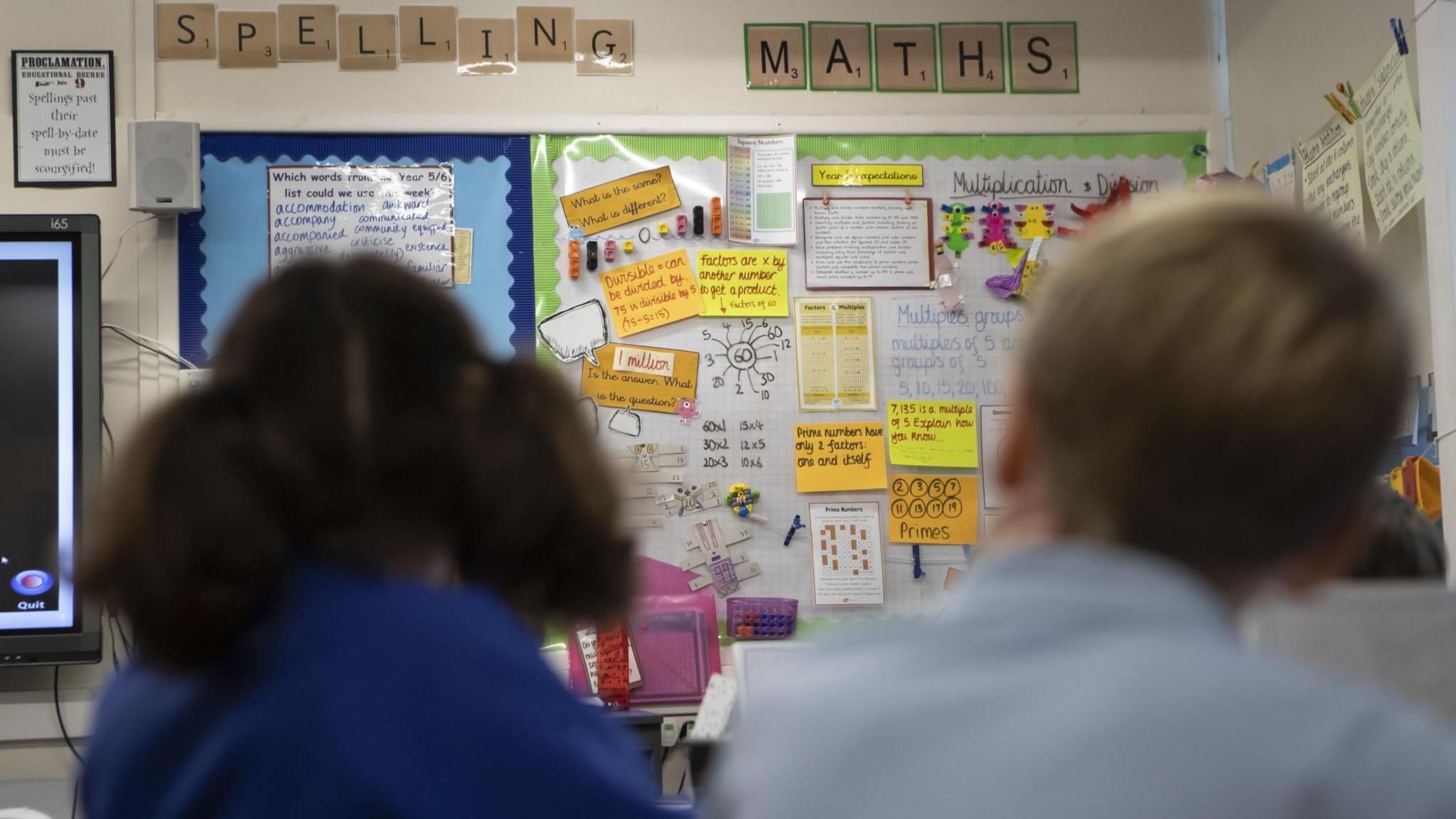Teachers to vote on strike action over workload

The EIS said teachers were struggling with "unsustainable" workloads
- Published
Scottish teachers will vote on strike action over what union leaders describe as a "crippling" workload.
The Educational Institute of Scotland (EIS) said it had been years since the SNP pledged to reduce teachers' class contact time to a maximum of 21 hours a week.
The decision to hold a statutory ballot for industrial action was taken unanimously at a special meeting of the EIS executive committee on Tuesday.
A Scottish government spokesperson said they were disappointed that the EIS had made the decision while "constructive discussions" were ongoing.
Cosla said it was working with the Scottish government on a proposal to deliver the pledge, and industrial action was in "no-one's best interests".
General secretary Andrea Bradley warned that "unfair, unhealthy and unsustainable" workloads had affected teachers' personal and professional lives for too long.
She said staff often had to work overtime for no extra money in order to complete all of their tasks.
Ongoing dispute
The move escalates a dispute between the union, the Scottish government and councils' body Cosla over a manifesto commitment made in 2021.
The EIS entered the formal dispute in February after a deadline passed without a "tangible plan" to implement the change.
Ms Bradley said: "During this time, teachers have shown divine patience, while continuing to toil under excessive workload burdens.
"Thousands more teachers are without permanent contracts and out of work or underemployed as the Scottish government and Cosla have continually dithered, delayed and disagreed with one another over delivery of this essential commitment.
"The unanimous agreement by the EIS executive committee confirms that teachers' patience on this matter is now more than spent and we will now move ahead with a statutory ballot for industrial action."

EIS general secretary Andrea Bradley criticised the Scottish government and Cosla for the slow delivery of reducing class contact time
She said that both councils and ministers "must keep their promise" and deliver a "concrete programme" of workload reduction, adding that the ballot could still be avoided if commitments were met.
"It is simply unacceptable that the Scottish government has failed to deliver," she added.
"The repeated obfuscation from Cosla, representing teachers' employers, has only made the situation worse."
A spokesperson for the Scottish government said they were committed to working with teaching unions and Cosla to agree on an "approach to delivering a reduction in class contact time at pace".
"Ministers respect union members' right to withdraw their labour, but are disappointed that the EIS has taken this action while these constructive discussions are ongoing," they added.
Councillor Katie Hagmann, from Cosla, said: "We are disappointed that there are threats of disruption to children's education.
"Cosla are working with the Scottish government on a proposal to deliver this.
"Industrial action is in no-one's best interests and will do nothing to improve the learning outcomes for Scotland's young people."
Related topics
- Published3 June

- Published29 April

- Published27 February

- Published28 August 2024
